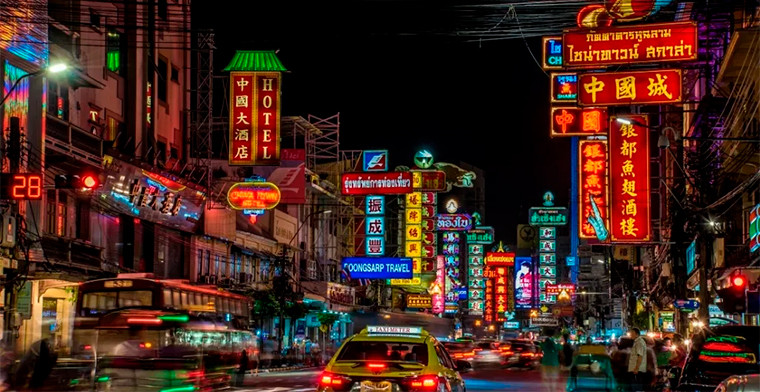Thailand to legalize casinos with new Integrated Resort Act
Wednesday 09 de October 2024 / 12:00
2 minutos de lectura
(Thailand).- The Thai Ministry of Finance has released a comprehensive report detailing the results of public consultations on the draft of the Integrated Resort Act, which could open the door for casinos in the country.

The consultations were conducted from 2 to 18 August 2024, gathering input from a diverse range of stakeholders, including government agencies, private sector representatives, and the general public. The government is planning to launch Entertainment Complexes—or casinos—across the country to promote economic growth.
The results from the public consultation reveal that respondents are particularly focused on safeguarding the future industry from foreign dominance while creating a fair and competitive market. They also stressed the importance of ensuring player safety, addressing both the financial stability of operators and the implementation of responsible gaming initiatives. Additionally, there is a strong consensus that this emerging industry should benefit Thai society as a whole, rather than being concentrated in specific regions.
An industry designed for national benefit
– Minimum Thai ownership: The most significant recommendation is that at least 30 to 50 percent of shares in casino operations should be held by Thai nationals to encourage local investment and mitigate the risk of foreign domination in the industry.
– Licence and lease duration: The draft currently proposes a 30-year licence term. While some participants argued that this duration was too long and should be reduced to 10 years, others declared that considering the investment required from the operators, the duration should be extended. There was also a strong recommendation against allowing foreigners to lease or own land for casino operations for more than 25 years, aiming to maintain control over local assets.
– Location of Entertainment Complexes: These complexes should not only be located in Bangkok but also strategically placed in tourist-heavy areas like Phuket, Chiang Mai, and Hua Hin to promote regional development and tourism.
– Licensing process: Participants in the public consultation stressed the need for a transparent and fair bidding process for issuing licences. The consensus was that foreign investors should be allowed to participate in the bidding, promoting healthy competition.
– Licence cap: It was suggested that the number of licences should be capped. The final recommendation states that there should be a limit of 3 to 7 licences. Specific allocations for different regions were also discussed, with suggestions for 2 to 3 licences in Bangkok and 5 to 7 in other provinces.
– Fee structure: Concerns were raised about the proposed high fees for licences and entry, which might deter potential operators and players. Recommendations included setting the annual licence fee at reasonable rates and capping the entry fee for Thai citizens at €27 to €54.
Responsible gaming
– Local oversight committees: Participants also expressed concerns about the social implications of legalised gambling, calling for comprehensive measures to address responsible gaming and potential addiction issues. There were suggestions for the establishment of local oversight committees to ensure that the casinos operate within the set legal and ethical frameworks.
– Gaming area allocation: Stakeholders called for clearer regulations regarding the gaming area within the complexes, suggesting that it should comprise 5-20 percent of the total space to ensure a balanced entertainment offering and promote responsible gaming practices.
– Capital reserves: The necessity for licence holders to maintain a minimum capital reserve was recommended, to ensure that funds are available to pay out winnings.
Next steps
The recommendations from the public consultations have been compiled and presented to the Cabinet for further consideration. The government plans to refine the draft law based on these insights before moving forward with the legislative process.
The establishment of legalised casinos in Thailand is viewed by the government as a means to introduce a new lucrative industry, boost economic growth, and stimulate the tourism sector. However, the successful implementation of such legislation will heavily depend on striking a balance between economic opportunity and social responsibility, ensuring that the interests of local communities and businesses are protected in the face of foreign investment, as demonstrated by the public consultation results.
Categoría:Casino
Tags: Sin tags
País: Thailand
Región: Asia
Event
ICE Barcelona 2026
19 de January 2026
Spintec Showcases Next-Generation Electronic Table Games at ICE Barcelona 2026
(Volcja Draga).- Spintec reinforced its position as a leading innovator in electronic table games during ICE Barcelona 2026, standing out within The Merkur Group’s expansive exhibition through a diverse portfolio of immersive products focused on player comfort, dynamic gameplay and efficient use of gaming floor space.
Tuesday 03 Feb 2026 / 12:00
Buenos Aires City Lottery Shines at ICE Barcelona 2026: Strategies Against Illegal Gambling
(Buenos Aires).- Within the framework of World Gaming Week, the Buenos Aires City Lottery took part in ICE Barcelona 2026, standing out for its efforts in the fight against illegal gambling and for promoting cooperation among regulators across Latin America.
Tuesday 03 Feb 2026 / 12:00
Insights from ICE Barcelona 2026: Vanesa Prelec on Timeless Tech’s Strategic Outlook
(Barcelona, SoloAzar Exclusive).- Vanesa Prelec, B2B Marketing Specialist at Timeless Tech, shares her reflections on ICE Barcelona experience, key industry trends for 2026, and the company’s strategic priorities in Latin America.
Tuesday 03 Feb 2026 / 12:00
SUSCRIBIRSE
Para suscribirse a nuestro newsletter, complete sus datos
Reciba todo el contenido más reciente en su correo electrónico varias veces al mes.



















